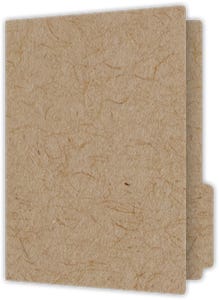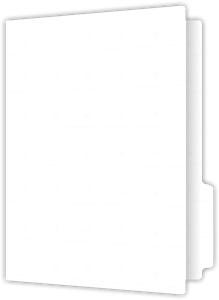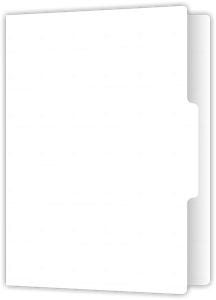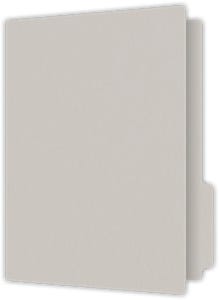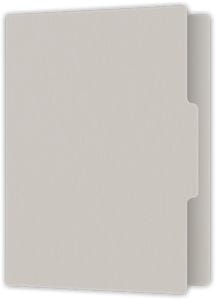Medical File Folders
Medical file folders are essential tools in healthcare for efficient organization, accessibility, and compliance, offering benefits such as improved workflow, privacy protection, and cost efficiency.
Importance of Medical File Folders in Office Organization
Key Summary:
- The article will focus on the importance of medical file folders in organizing office records efficiently.
- A detailed guide on the use of medical file folders and their real-world applications will be provided.
- Key findings will cover the definition, types, features, benefits, use cases, and examples of medical file folders.
In a medical office, maintaining efficient records is crucial for providing quality patient care and ensuring compliance with regulations. Medical file folders play a vital role in this process by organizing documents systematically and securely. Understanding the types of medical file folders available and their features is essential for selecting the right tools for the job. By using medical file folders, offices can improve organization, accessibility, and privacy protection while saving time and costs. Real-world examples will showcase how medical file folders are utilized in various healthcare settings, demonstrating their practical benefits in action.
Understanding Medical File Folders
Medical file folders are essential tools used in healthcare settings to organize and store patient records efficiently. These folders serve the purpose of keeping medical documents in one place, making it easier for healthcare professionals to access and update information as needed.
Definition and Purpose
Medical file folders are specialized folders designed to hold and organize medical records, including patient histories, test results, treatment plans, and other relevant documents. The primary purpose of these folders is to ensure that healthcare providers have quick and secure access to patient information when delivering care.
Types of Medical File Folders
There are various types of medical file folders available, such as manila folders, color-coded folders, and expandable folders. Each type has its unique features and benefits, catering to different organizational needs within a medical office.
Features to Look for in Quality Folders
When selecting medical file folders, it is essential to consider features like durability, size, labeling options, and compatibility with filing systems. High-quality folders should be sturdy enough to withstand frequent handling and storage while providing ample space for documents and clear labeling for easy identification.
Benefits of Using Medical File Folders
Utilizing medical file folders in office record-keeping offers several advantages that contribute to the overall efficiency and effectiveness of healthcare operations.
Improved Organization and Accessibility
By using medical file folders, healthcare providers can organize patient records systematically, making it easier to locate specific information when needed. This enhanced organization leads to improved accessibility, allowing for quick retrieval of documents during patient consultations and medical procedures.
Compliance with Privacy Regulations
Medical file folders help healthcare facilities maintain compliance with privacy regulations, such as HIPAA, by securely storing patient information and restricting access to authorized personnel only. This ensures that sensitive data remains confidential and protected from unauthorized disclosure.
Time and Cost Efficiency
Efficient record-keeping with medical file folders saves time for healthcare professionals by streamlining document management processes and reducing the time spent searching for patient records. Additionally, organized records contribute to cost efficiency by minimizing errors, duplicate tests, and unnecessary administrative expenses.
Who Can Benefit from Medical File Folders
Medical file folders are essential for various professionals and organizations within the healthcare industry. The following groups can benefit from utilizing medical file folders:
- Physicians and healthcare providers
- Medical office administrators and staff
- Clinics, hospitals, and healthcare facilities
- Healthcare educators and researchers
- Insurance companies and billing departments
When to Incorporate Medical File Folders
Knowing when to use medical file folders is crucial for maintaining efficient record-keeping practices. Consider the following scenarios where incorporating medical file folders is highly beneficial:
- When organizing patient medical histories and treatment plans
- During patient consultations and examinations
- For managing insurance claims and billing documents
- When storing and accessing diagnostic test results
- During audits and compliance checks for regulatory requirements
Practical Applications of Medical File Folders
Medical file folders have diverse use cases in healthcare settings, contributing to improved workflow efficiency and patient care. Some examples of how medical file folders are utilized include:
Medical Clinics
- Organizing patient records for quick access during appointments
- Managing treatment plans and medication schedules
- Ensuring compliance with privacy regulations
- Facilitating communication among healthcare providers
- Tracking patient progress and outcomes
Hospitals
- Centralizing patient information for multidisciplinary care teams
- Coordinating care plans and interventions for complex cases
- Securing sensitive data to protect patient privacy
- Streamlining administrative processes for efficient operations
- Supporting research initiatives and clinical trials
Private Practices
- Customizing file organization based on specialty and patient demographics
- Enhancing patient engagement through transparent record-keeping
- Improving appointment scheduling and follow-up care coordination
- Ensuring accurate billing and reimbursement processes
- Maintaining detailed documentation for legal and compliance purposes
What Sets Our Product Apart
Our medical file folders are designed with a focus on durability, organization, and user-friendly features to enhance the efficiency of healthcare record-keeping. The unique construction of our folders ensures long-lasting use, even in high-traffic medical environments where frequent handling is common.
List of Use Cases
Our medical file folders are versatile tools that find applications in various healthcare settings, catering to the needs of medical professionals, administrators, and support staff. Some common use cases where our folders excel include:
- Organizing patient records for quick access during appointments
- Managing treatment plans and medication schedules
- Ensuring compliance with privacy regulations
- Facilitating communication among healthcare providers
- Tracking patient progress and outcomes
Optimizing Your Experience with Our Product
To make the most out of your experience with our medical file folders, consider implementing the following strategies:
- Regularly audit and update your filing system to ensure optimal organization
- Train staff on proper folder handling and storage practices to maintain folder integrity
- Utilize color-coding or labeling systems to enhance document retrieval efficiency
- Implement secure storage solutions to protect patient confidentiality and data integrity
- Seek feedback from users to continuously improve and tailor our product to your specific needs

